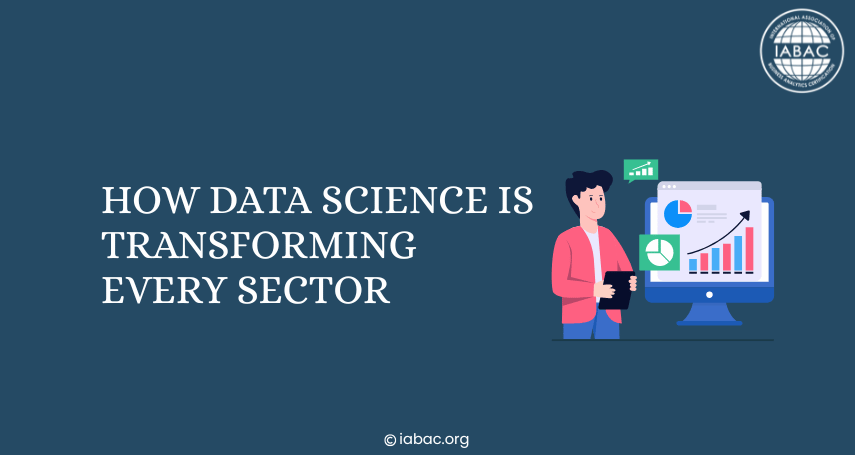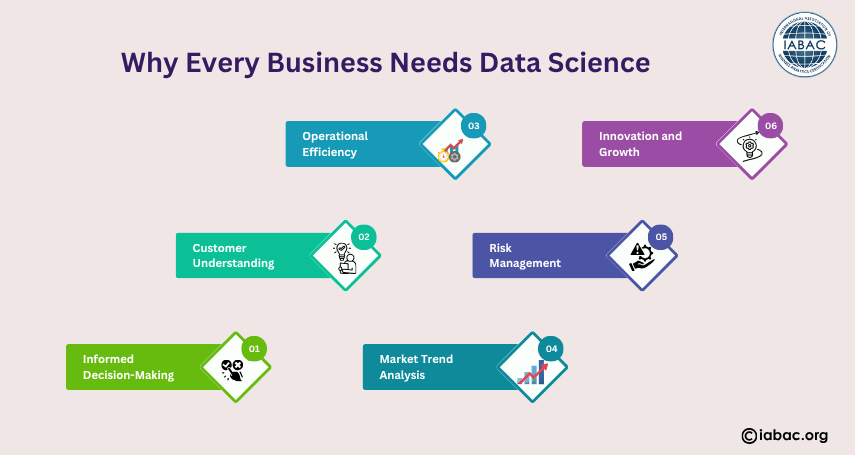|

Data science is redefining how industries operate by uncovering patterns, predicting trends, and enabling smarter decision-making through data-driven insights. With a strong data science certification, I’ve become a certified data scientist, equipped to drive meaningful change across diverse domains. What Makes Data Science So Powerful?At its heart, data science is about extracting value from raw and complex datasets. By combining analytical tools, machine learning, and visualization, it uncovers hidden patterns and drives smarter decisions. A professional with a data science certification gains mastery of these tools and methodologies—becoming a certified data scientist capable of turning data into direction. The Rise of Data Science in Modern IndustryData science is a multidisciplinary approach that combines statistical analysis, machine learning, data visualization, and domain expertise to identify trends and patterns. This powerful toolkit helps organizations make better business decisions, anticipate future challenges, and respond quickly to market demands. Industries now rely on certified data scientists to optimize operations, improve products and services, and innovate at scale. With reliable data sources and sophisticated algorithms, data science offers clarity in complex environments. Why Every Business Needs Data ScienceData science is no longer just for tech companies. In today’s competitive environment, businesses of all sizes and industries rely on data to guide smarter decisions, uncover new opportunities, and stay ahead of the curve. Here’s why data science is essential for modern businesses: Informed Decision-Making: Data science helps businesses turn raw data into meaningful insights, enabling leaders to make choices backed by evidence instead of guesswork. Customer Understanding: By analyzing customer behavior, preferences, and feedback, businesses can personalize experiences and improve retention. Operational Efficiency: Data-driven insights can identify bottlenecks, reduce waste, and streamline processes for greater productivity. Market Trend Analysis: Data science tools detect shifts in customer demand and market behavior, allowing businesses to respond quickly and stay relevant. Risk Management: Predictive models can forecast potential problems—such as financial loss or customer churn—so companies can take action early. Innovation and Growth: Businesses can explore new products, services, or markets by identifying patterns and gaps in existing data. Competitive Advantage: Companies that use data wisely are more agile and adaptable, giving them an edge in a fast-moving market.

How Data Science Is Impacting Key SectorsData science is transforming the way industries operate by unlocking the value hidden in data. From better customer service to more efficient operations, businesses across sectors are using data science to improve performance and stay competitive. Key sectors being transformed by data science: Healthcare: Data science supports disease prediction, patient care optimization, and medical imaging analysis. Hospitals use predictive analytics to manage resources and improve treatment outcomes. Finance: Banks and financial institutions apply data science for fraud detection, credit scoring, algorithmic trading, and customer segmentation. Retail and E-commerce: Retailers analyze consumer behavior to personalize shopping experiences, optimize inventory, and forecast demand accurately. Manufacturing: Data science enables predictive maintenance, quality control, and supply chain optimization—reducing downtime and improving efficiency. Transportation and Logistics: Companies use data to improve delivery routes, manage fleets, and anticipate delays, enhancing customer satisfaction and cost savings. Energy: Energy providers leverage data science for demand forecasting, grid management, and optimizing renewable energy production. Education: Schools and e-learning platforms track student performance, personalize content, and improve learning outcomes using data analytics. Telecommunications: Data science helps telecom providers enhance network performance, reduce churn, and offer more targeted services.
Becoming a Certified Data ScientistA data science certification can open doors to high-demand roles across industries. It validates your technical skills, builds your credibility, and positions you for career advancement in a data-driven world. What the journey involves: Choosing the right certification: Select a program that aligns with your goals—whether it's focused on machine learning, big data, or business analytics. Building foundational skills: Develop strong knowledge in Python or R, statistics, data wrangling, and visualization tools. Gaining hands-on experience: Work on real-world datasets and projects to apply theoretical knowledge and build a portfolio. Staying updated: The data science field evolves fast. Keep learning through webinars, communities, and advanced courses. Preparing for the exam: Certification exams test practical skills. Practice with mock tests and revise core concepts thoroughly.
Popular certifications to consider: Key Skills Every Certified Data Scientist Should HaveTo succeed as a certified data scientist, it’s not just about passing an exam—it's about mastering a set of core competencies that drive real-world value. These skills help you turn raw data into actionable insights for smarter decision-making. Essential skills to focus on: Programming Proficiency: Comfort with Python or R is crucial for data manipulation, analysis, and building machine learning models. Statistical Analysis & Mathematics: A solid grasp of probability, hypothesis testing, regression, and other statistical techniques underpins sound analysis. Data Wrangling: Ability to clean, transform, and organize data from multiple sources into usable formats. Data Visualization: Skills with tools like Tableau, Power BI, or Matplotlib to create clear and compelling visuals. Machine Learning: Understanding supervised and unsupervised learning, model evaluation, and deployment best practices. SQL and Database Management: Strong command of SQL to query and manage structured data from relational databases. Communication & Storytelling: Translating data insights into business-friendly language for both technical and non-technical audiences. Big Data Technologies (optional but valuable): Familiarity with Hadoop, Spark, or cloud-based tools like AWS and Azure can give you an edge.
Data Science in the Future: Trends and ExpectationsAs data continues to grow in scale and importance, data science is evolving to meet new challenges and opportunities. From automation to ethical AI, the field is heading toward a more integrated and intelligent future. Key trends shaping the future of data science: Automated Machine Learning (AutoML): Tools that simplify model development, enabling faster experimentation and deployment with less manual coding. Ethical and Responsible AI: Growing emphasis on fairness, transparency, and bias reduction in algorithms to ensure trust and accountability. Real-Time Analytics: Increased demand for real-time data processing in industries like finance, retail, and logistics to support immediate decision-making. Hybrid Roles and Cross-Disciplinary Skills: Data scientists are expected to collaborate closely with domain experts, blending technical skills with business acumen. Edge Computing Integration: Moving data processing closer to the source to reduce latency, especially useful in IoT and manufacturing scenarios. DataOps and MLOps Adoption: Integration of development and operations practices to streamline the lifecycle of data pipelines and machine learning models. Explainable AI (XAI): A growing requirement to understand and explain how models make predictions, especially in regulated industries. Greater Use of Open-Source Tools: Continued reliance on open-source libraries and platforms for innovation, flexibility, and community-driven improvement.
Data science is transforming industries by enabling smarter decisions, driving innovation, and improving efficiency. As businesses grow more data-driven, the demand for skilled professionals rises. Earning a data science certification equips you with the expertise to turn data into impact, making you a valuable asset in the modern digital world. |
